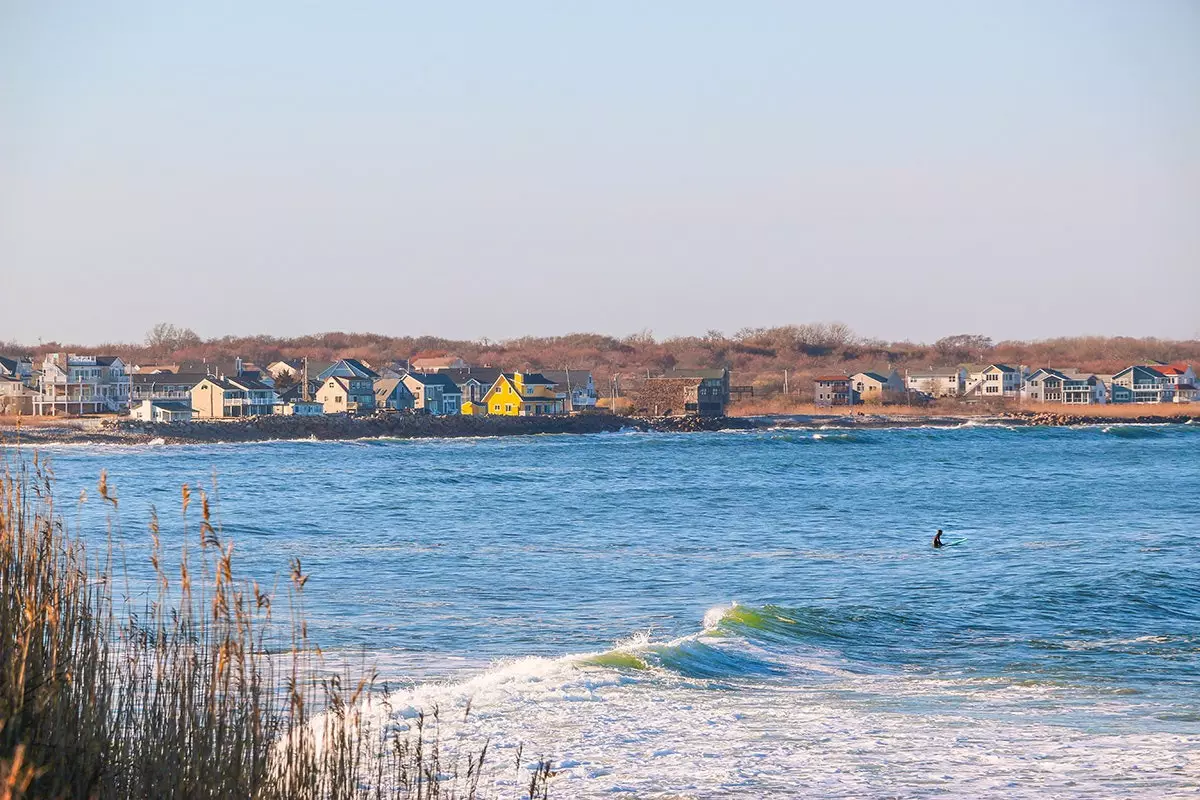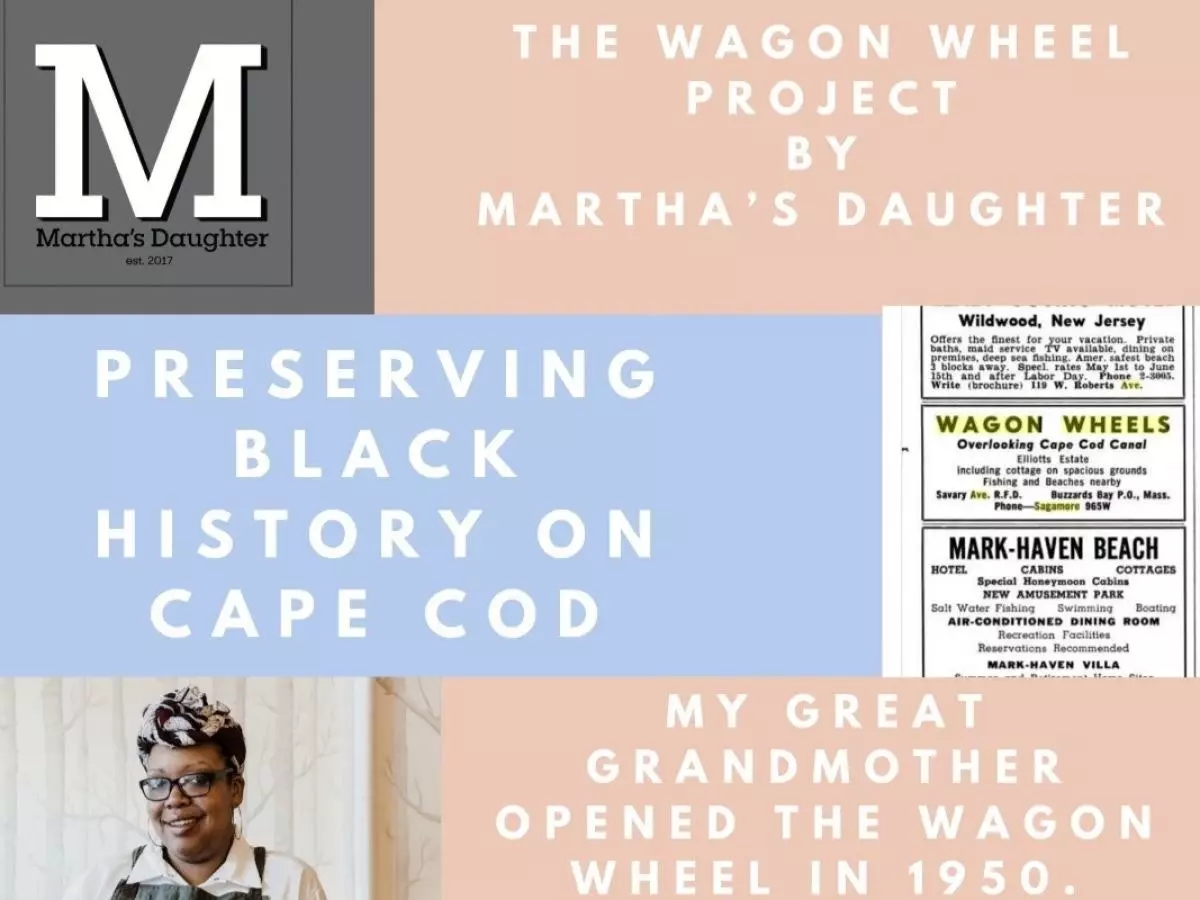
Cape Cod, Massachusetts, USA
Nyanyika Band , who grew up in Massachusetts, fondly remembers family Thanksgiving dinners at Cape Cod , surrounded by the screams of her cousins eating plates full of turkey and side dishes. her great-grandmother, Marie Elliot, or "Gram" as she used to be called , was the matriarch of the family, the most respected and the one who always presided over the table.
Although she died while Banda was still young, Elliot's influence, both on her family and on Cape Cod , has been durable. In 1950 she was the first black woman to buy land in the area : five acres and a huge Victorian house that soon became the Wagon Wheel Bed & Breakfast . Over the next several decades, she became known as a safe place for black travelers who visited The Upper Cape during the Jim Crow laws.
The Wagon Wheel appeared in the Green Book and Ebony Magazine , and was frequented by numerous black artists, writers, and musicians before closing its doors in the 1970s. Still, it wasn't until Banda – now a famous chef, writer and entrepreneur – she turned 30 when she began to wonder about that place. “For some reason my family didn't think it was important to share the stories of what happened there when I was little,” she says. “But I have always had the impression that it was a place full of happiness.”
Decades later, Band wants to revive that unique and fundamental piece of history of black history on Cape Cod. When Elliot died, the land and property were divided among her five children. The Wagon Wheel is now the vacation home of Banda's cousin, who hopes it will one day become a small conference space or writer's retreat. Banda also hopes to register it as a historical landmark so that people can come and visit it.
But she Banda sees further and has eye on a bigger project . In the area near the original Wagon Wheel, Banda's great-aunt Connie (Elliot's eldest daughter) built a four-story house to live in. After her death in the spring of 2020, the house was foreclosed on by the bank in January 2021. To get it back, Banda has started a GoFundMe page to buy it and turn it into the Martha's Daughter B&B and Restaurant , a tribute to the Wagon Wheel and her mother, Martha. "That house was a safe place for black people in the '50s and '60s, during the Jim Crow days," she says. "I want to turn it into something that celebrates that history."
Cape Cod is known for a variety of things, from its beaches to its lobster rolls, but diversity isn't one of them. In the 2000 census it was published that 96% of Cape Cod residents were white and only 2% were black or African American. Almost 20 years later, in 2017, the American Community Survey showed that the population of black or African-American residents had increased in a very limited way, reaching 2.7%. After 70 years, the Elliot family's land is the only land owned by blacks.
“I grew up in Amherst, a pretty unique bubble that celebrated diversity. Cape is the polar opposite of that,” says Banda. "I have a lot of black friends who have never been to the Cape because they don't see it as a very friendly place."

while the movement Black Lives Matter continues to call for urgent change when it comes to racial equality, support for black entrepreneurship is a critical part of enacting progress. “It is becoming increasingly clear that as Americans we have not been doing a good job of supporting black Americans. But there are many stories that can and should be told,” says Banda. America is not a safe place for black people. right now. And 70 years ago it wasn't. My grandmother created a space where people felt safe and I want to bring life to a place like this”.
With the help of GoFundMe, Banda envisions Martha's Daughter (which shares a name with her old restaurant in Duluth) with downstairs and upstairs suites, plus three other rooms for couples or solo travelers. While all the original memories of the Wagon Wheel were lost in the year 2000 due to the dilapidated state of the house, she trusts that her spirit and that of her Gram will always be a part of Martha's Daughter.
One of the project's most ambitious projects would be to turn the backyard into a sustainable garden to plant vegetables and set up a restaurant, which would celebrate the African diaspora with produce sourced from BIPOC (Black, Indigenous and Colored) farmers and vendors. “We will have clams, lobster and shellfish on the menu. But also I want to make room for Malawian food , which is also part of my roots,” says Banda that she will also be inspired by her great-grandmother's recipes, such as her blueberry muffins and strawberry rhubarb cake.
Her GoFundMe still has some way to go before it reaches $300,000, a sum that is just part of the equity needed to buy the house. Still, Banda is optimistic. "It's not something I'm willing to give up right now," she says. “There is a part of me that feels that my ancestors are taking care of me Helping me keep going."
